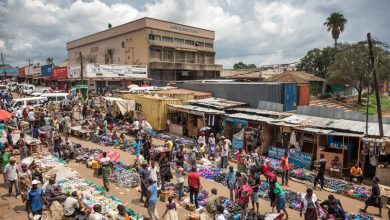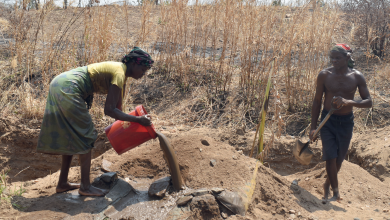World Bank urges economic reforms
The World Bank has outlined a three-point framework to create conditions for growth, warning that widening fiscal and external deficits threaten growth, investor confidence and access to future development support.
In its July 2025 Malawi Economic Monitor titled ‘Navigating uncertainty’, the Bretton Woods institution has outlined the three points, namely restoring macroeconomic stability, supporting investment and export growth and building resilience and protecting the poor.

Explaining the three-point plan, the World Bank said restoring macroeconomic stability will entail increasing domestic revenue through reforms to increase progressivity of the tax system and the efficiency of tax administration, reducing wasteful spending and finalising debt restructuring and controlling borrowing and reducing inflation.
On supporting investment and export growth, the bank said this could be done by phasing out the implicit fuel subsidy, implementing reforms to enable the mining sector to support growth over many decades, removing foreign exchange surrender requirements and reducing trade barriers.
The bank said building resilience and protecting the poor will mean addressing growth risks from climate change by investing in climate-resilient agriculture, increasing shock-responsiveness and sustain ability of the social protection system and mitigating food insecurity.
In an interview, World Bank senior economist for Malawi Jakob Engel said: “The most important priority is to stabilise the macroeconomy by reducing fiscal and external imbalances.
“This will help to bring down inflation, ease exchange rate pressures and rebuild investor confidence.”
He said Malawi must stick to approved budgets, improve revenue collection and phase out fuel subsidies, while favouring imports that support production over consumption.
The biannual report paints a worrying picture of Malawi’s fiscal path.
It said Malawi’s current account deficit hit 22 percent of gross domestic product in 2024 while foreign exchange reserves fell to $521 million in May 2025 from $591 million in May 2024, providing only 2.1 months of import cover.
Engel said it is critical to build up RBM forex reserves by increasing market purchases and shifting foreign exchange from informal to formal channels, calling for export promotion, more foreign direct investment and a reduction in the country’s import bill.
In an interview yesterday, Centre for Social Concern economic governance officer Agnes Nyirongo called for pro-poor fiscal restructuring.
“Fiscal consolidation must not mean cutting essential services. Malawi must protect health, education and social cash transfers,” she said.
Nyirongo urged government to enhance transparency, reduce elite capture and support climate-resilient and gender-responsive development.
“Without systemic reforms, the burden of adjustment will fall on those least able to bear it,” she said.
Economics Association of Malawi president Bertha Bangara-Chikadza said they support reforms, but argued that they should be structural rather than punitive, adding that the country should revisit tax incentives and plug inefficiencies.
“Malawi’s value added tax [VAT] exemptions cost about three percent of GDP. These need to be re-evaluated. Government must align revenue collection with national priorities,” she said.
Bangara Chikadza also advocated for activating integrated financial management information system’s procurement module and adopting an e-procurement system.
She cautioned against broad cuts to social spending, urging instead for targeted reforms.
“Cutting social spending when half of the population lives in poverty is not a viable option,” said Bangara Chikadza.
Ministry of Finance and Economic Affairs officials were not available for comment as we went to press at 4pm yesterday.
With the fiscal gap widening and donor confidence shaken, the space for credible reform is shrinking.
Early slippages in the 2025/26 cycle raise doubts about the government’s ability to follow through.
Development partners are watching for signs of fiscal discipline and transparency. Whether Malawi stabilises or slips deeper into crisis will depend on how quickly and inclusively the government acts on the reforms.





